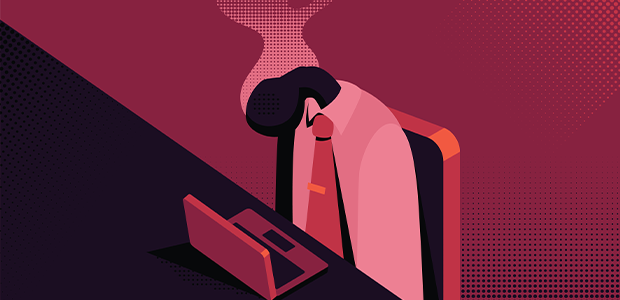
From burnout to balance: lessons from a startup founder
It was during my second startup that I burnt out. After my first company took off quickly – creating and delivering DSLR camera equipment to customers worldwide within a year – I assumed my next venture would be just as smooth. I was wrong.
At Savu, we developed technology aimed at protecting people from electromagnetic radiation. It was technical, with steep learning curves and unique challenges. But those weren’t what led to my burnout.
The business itself wasn’t the issue. I was.
This is what I learned from the experience – and why I believe every founder should go to therapy.
The relentless nature of building a startup
When building a business from scratch, switching off isn’t an option. There’s always something to check, fix, or worry about – whether it’s Slack messages, customer issues, or last-minute decisions. You’re constantly juggling priorities and feeling like you need to be everywhere at once.
When launching my third business Honest, now the UK’s top-rated B Corp mobile network, my co-founder Andy and I managed customer service 24/7. Day or night, we were on. I lost count of the number of times I stepped out of weddings or family events to handle support tickets. While our roles have evolved as the team grows, the ‘always-on’ nature hasn’t. I still monitor hourly metrics, oversee product and marketing, and am on call when a crisis hits.
There’s also fundraising and the emotional toll that comes with it. It’s not unusual to hear ‘no’ from over 90% of investors before getting a yes. Each rejection mounts the pressure, especially when there’s a team relying on you. Honest has grown and attracted top-tier investment, but we had moments when our future seemed uncertain.
Burning out
While scaling Savu in 2018, I took my usual response to pressure: work harder.
I’d always been a high achiever at school, university, and in life. If something wasn’t working, I worked harder until it did. But startups don’t play by the same rules. You’re not in control of every variable.
The more overwhelmed I felt, the more I isolated myself. I skipped social events, neglected my physical health, and convinced myself that I couldn’t slow down. Eventually, I crashed.
That period forced me to rethink everything. I learned that running a company is an ultramarathon, not a sprint. Slower periods are as important as bursts of intensity. I now make time to switch off, whether it’s a weekend away or an evening offline with friends. These breaks make me sharper when I need to be on.
At Honest, we promote that same culture to reduce the risk of burnout across the team: flexible schedules, remote working, and regular check-ins.
Building a more sustainable lifestyle
That burnout was a wake-up call to take my wellbeing seriously. It was also when I made one of my best decisions to date: starting therapy.
Many people see therapy as for coping with moments of crisis, but I think of it like fitness training for your mind. As a founder, your emotional state affects everyone around you. Therapy has become my space to process stress, find clarity, and spot red flags early.
Since 2020, it’s been integral to how I work and live. It’s helped me become more grounded, more aware, and better equipped to navigate challenges, both at work and at home. As well as meditating most days, I also find CrossFit a great way to switch off while getting in physical exercise and social time.
Before burning out, I couldn’t have imagined being someone who meditated or went to therapy. Now, I can’t imagine life without it.
I’m not sure it’s possible to truly master work-life balance as a founder. But with the right tools, you can build a lifestyle that feels productive yet sustainable. And for me, therapy is critical to that.
For more startup news, check out the other articles on the website, and subscribe to the magazine for free. Listen to The Cereal Entrepreneur podcast for more interviews with entrepreneurs and big-hitters in the startup ecosystem.

